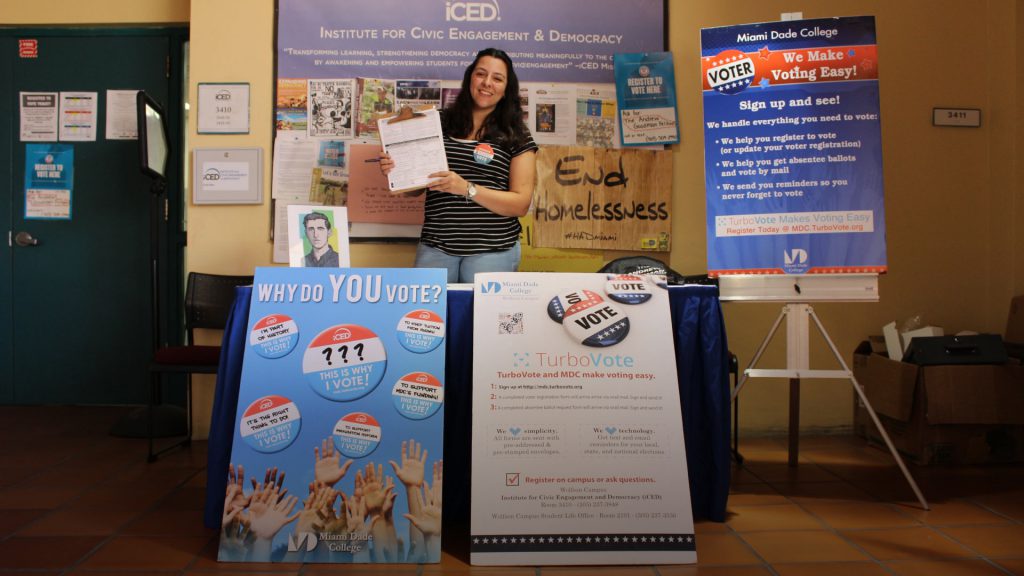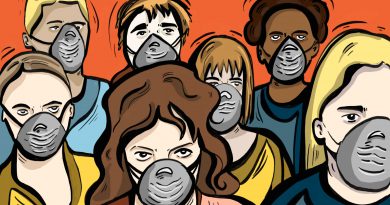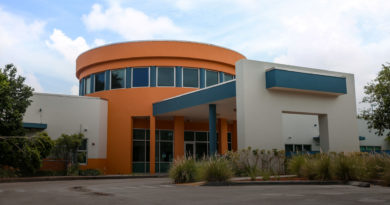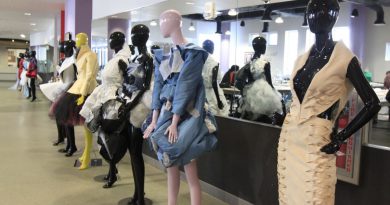iCED Pivots To Virtual Service-Learning After Drastic Volunteer Drop Due To COVID-19
During an average year, the Institute for Civic Engagement and Democracy (iCED) at Miami Dade College has 7,000 student volunteers.
This past year, only 3,000 volunteers pledged their time to the civic-minded organization. The drastic dip was caused by the coronavirus pandemic. It forced many of the institute’s non-profit partners that provide service-learning opportunities to close down.
“We used to have more than 200 partners on the list,” said Joshua Young, iCED’s Collegewide Director. “We had to wipe it clean at the beginning of [the pandemic] because a lot of our partners struggled.”
The MDC Community Partner List whittled down to 40 organizations during the early part of the pandemic, forcing iCED to find virtual opportunities for students.
The list now includes 51 organizations that offer virtual and in-person service-learning.
“It’s a database that we’ve been trying to build back up because there are some students who still want to volunteer and some professors who are still requiring academic service-learning,” Young said.
One of the organizations on the list is the Women’s Breast & Heart Initiative. Before the pandemic, students went door-to-door to talk about breast and heart health. Now, they educate people through social media posts.
The virtual initiative turned 598 MDC students into certified advocates for the program and resulted in more than 1,700 social media posts about the education, early detection, and prevention of breast cancer and heart disease.
“This new service delivery model empowers students to educate their peers about how to help prevent and detect disease, both locally and globally through social media platforms,” said Andrea Ivory, founder and executive director of the Women’s Breast & Heart Initiative. “This innovative program is being offered at 14 colleges and universities throughout the country.”
BuddySystem MIA is another initiative that started during the pandemic. Their most recent effort is to feed victims of food insecurity through community fridges.
“There is enough food for everyone [in South Florida] to get fed and no one to go hungry,” said Jessica Gutierrez, co-founder of BuddySystem MIA. “That is where BuddySystems comes in.”
iCED has also kept students engaged by promoting the Civic Action Scorecard, a point system that encourages civic engagement through activities like registering people to vote and planting South Florida native species.
Using the scorecard, students earn points instead of service-learning hours. During the past year, almost 2,000 students have used it as an alternative to traditional service activities.
“We continue to grow the Civic Action Scorecard as faculty and students are finding it very fun, educational, and rewarding,” Young said.
Some faculty members have incorporated the Civic Action Scorecard into their course syllabi. Hialeah Campus English professor Kelly Kennedy-Everett is one of them. She had students complete voter engagement actions on the scorecard and submit reflections about them.
“I have students who are changing their actions regarding the water they use, the stuff they buy, and how they approach their civic duty,” Kennedy-Everett said.
Another engagement platform that iCED developed during the pandemic is Motivote. More than 760 students participated in about 5,000 voter engagement actions using the initiative.
In the coming months, iCED wants to increase student engagement with the Civic Action Scorecard, rebuild partnerships with nonprofits, create more internships focusing on civic engagement and possibly create a program for students who want to make a difference called Changemakers Scholars.
“One of the most important functions of education in America is to help students become informed, engaged, involved lifelong citizens who are concerned for the common good and want to use their talents to make a difference in the world,” Young said. “I’m so proud of MDC and how we have adapted to COVID-19 and continue to help our students fulfill the responsibilities we have to make a difference in the world.”




